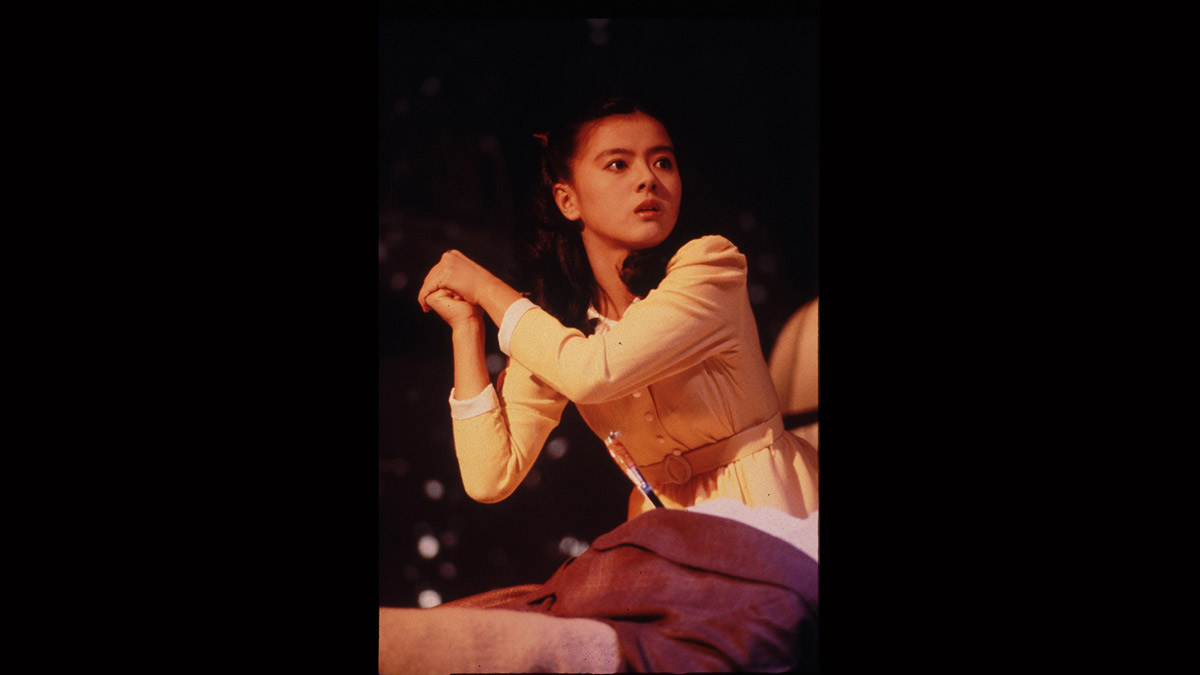
(C) KADOKAWA 1984
Why is “The W's Tragedy” transcending the boundaries between actors and roles and being passed down as the ultimate idol movie?
2017.08.18
“The W's Tragedy” Synopsis
Shizuka Mita (Hiroko Yakushimaru) is a trainee at a theater company who aspires to become an actress. He auditioned for the lead role in the theater company's next performance, ``The W's Tragedy,'' but was unsuccessful. The person who won the leading role was Kaori (Miho Takagi), a fellow student. Shizuka was given a small role as a maid and a teleprompter. . By chance, Shizuka, who is depressed, meets Moriguchi (Kinori Sera), a former member of a theater company who now works at a real estate agency. Moriguchi falls in love with Shizuka at first sight and asks Shizuka to marry him if she doesn't become an actress. Later, as the performance of ``The W's Tragedy'' begins, Shizuka accidentally stumbles upon the scene of a scandal involving Sho Hatori (Yoshiko Mita), the troupe's star actress. Dohara, Sho's patron, dies of hunger in Sho's hotel room during an affair. Fearing that a scandal will be reported, Sho proposes to Shizuka that she replace him in exchange for the lead role in ``The W's Tragedy''. Shizuka accepts the proposal out of her attachment to the leading role. .
Index
- Homage given in “Ama-chan”
- Kadokawa movies opened up new horizons for idol movies
- The moment you say goodbye to your idol self
Homage given in “Ama-chan”
"Receipt! Receipt! Receipt!"
This is the line that famous actress Hiromi Suzuka says to Aki Amano , who becomes her attendant, in the NHK morning drama ``Ama-chan.'' Repeating the same word three times in this way is an obvious homage to the famous line from "The W's Tragedy": "Actress! Actress! Actress!" Although there is a difference between the former line being ``said'' by Hiroko Yakushimaru and the latter being ``spoken'', there are many similarities between ``Ama-chan'' and ``The W's Tragedy'', as well as the common cast of Yakushimaru, as well as the relationship between a great actress and a newcomer. ” is synchronized by several elements. There are other lines that are homages, such as ``Don't touch my face,'' and there are some maniacal similarities, such as Hiroko Yakushimaru's movement of wearing sunglasses in both films, which looks exactly the same.
One of the main topics depicted in "Ama-chan" is "idol". Hiroko Yakushimaru played a major role in the "idol movie" genre. What a blessing it is to be able to transcend time and witness the moment when these two intersect.
It might be a little strange to call ``The W's Tragedy'' an ``idol movie.'' However, the fact is that Yakushimaru, who gained national popularity as a top idol, made a vivid transformation from an idol to a real actress with ``The W's Tragedy'', her last starring role under Haruki Kadokawa's agency. is engraved in people's hearts as a definite memory.

